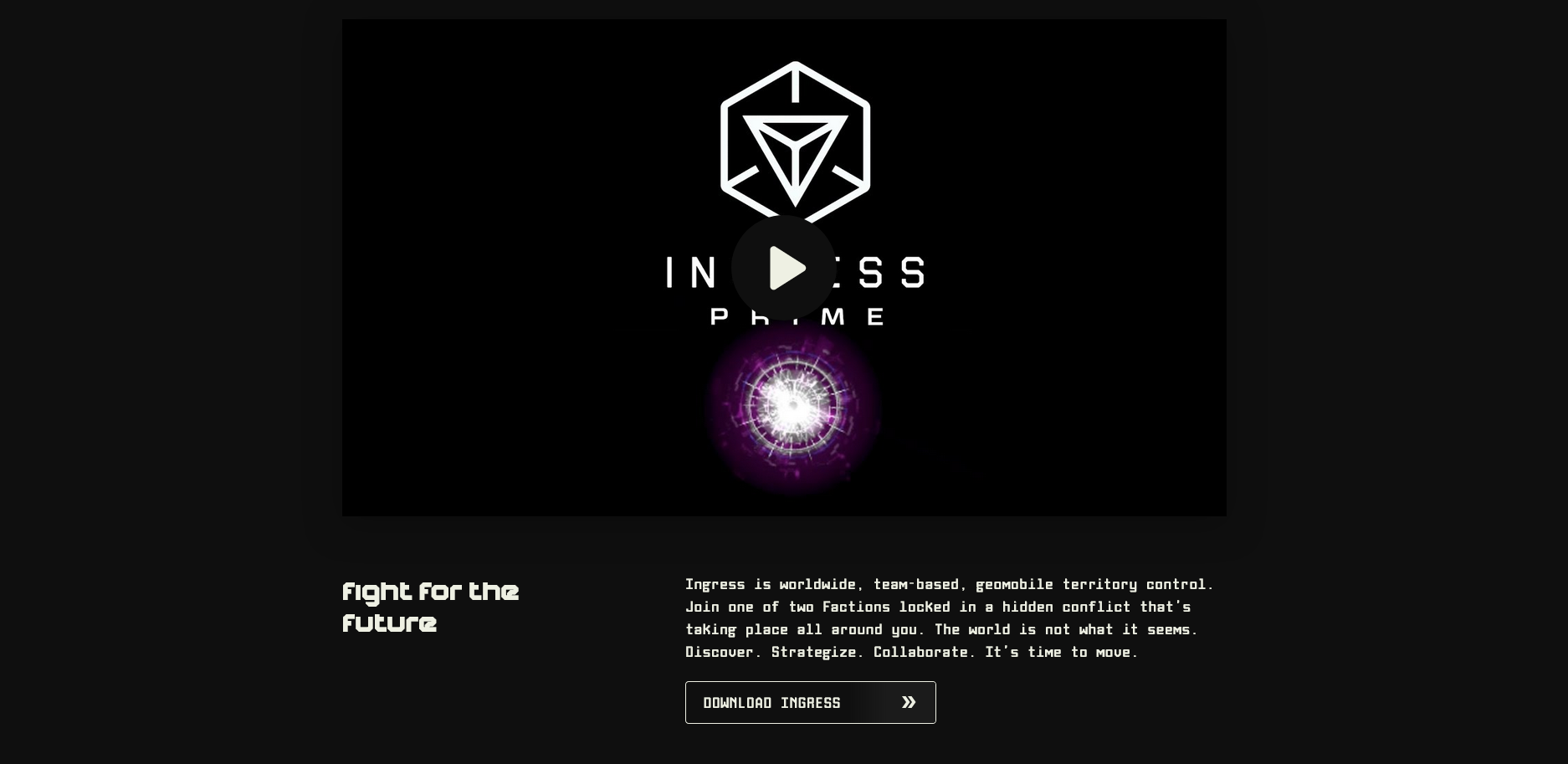
Why did you fall in love with Ingress? A thousand gamers have a thousand Hamlets in their hearts, but one thing is for sure: this game, which relies on real space and real time, not only promotes mainstream cultural identity, but also shapes a unique community subculture.
I don’t know how many old players still remember this slogan, which used to be the publicity slogan of a hand game called “Ingress”, which was officially released in December 2013, and has gone through ten years by now. For a handheld game, Ingress has already been very long-lived.
In the first few years, college students were the backbone of the player base. Ten years later, most of the earliest players have gotten married and have children. Even so, every time the official organizes a large-scale offline event, hundreds or even thousands of people will come from all over the world to participate.
To the question of “why did you fall in love with Ingress”, there are a thousand Hamlets in the hearts of a thousand players, but one thing is certain: this game, which relies on real space and real time, not only promotes the mainstream cultural identity, but also shapes a unique community subculture, and even has a certain reference significance for human sociology.
What is Ingress
Ingress is an LBS game, or Location Based Service Game, which means “game based on real geographic location”, or “location-based game” for short. In 2016, two years after the official release of Ingress, its developer Niantic used Ingress’s map data to develop another LBS game, Pokémon GO.
Virtual game setting, real camp confrontation
Ingress is set in a future where mankind has discovered a mysterious substance called XM, which often erupts around civilized buildings and statues.
Depending on their attitude towards XM, humans are divided into two camps: the Enlightened, represented by the green color, embrace XM and believe that it can enlighten human civilization. The Resistance, represented by the blue color, rejects XM, believing that it will destroy human civilization.
Against this backdrop, players must choose their side and engage in a perpetual battle with those on the opposing side to fight for the future of humanity. At the same time, the buildings and sculptures of human civilization that spew XM material (called Portals in the game) become game locations that players must physically visit themselves. Players operate within a 40-meter radius, and the blue and green sides attack, defend, and fight for the ownership of the Portal within this 40-meter radius, creating a fierce confrontation, and a unique love-hate relationship that leads to love and death.
“Immersion and purity” is a key feature of the Ingress gaming experience. When players first join the community, the most intuitive way to feel this immersion and purity is probably a game atmosphere. In the game, players take on the role of real-life agents, with players in the same camp helping and supporting each other, while those in different camps are incompatible. All communication within the camp uses an end-to-end encrypted communication tool, and the content of the communication is strictly confidential to the opposing camp. Whenever there is a need for cooperation between players from multiple regions, players will gather online to formulate a top-down strategy and then execute it layer by layer.
Of course, in order to avoid the leakage of such confidential information, these so-called strategic plans need to be kept strictly confidential, not to mention not being allowed to be released to public platforms for dissemination, which further leads to Ingress becoming more difficult to get out of the circle.
Even so, Ingress is a highly social game, and it’s not like players don’t have anything to brag about. Since it is sometimes necessary to fight in tandem with unfamiliar friendlies hundreds or thousands of kilometers away, players often look back on a successful campaign with a great sense of pride and involvement.
Of course, such large-scale battles don’t happen every day, but usually only in large official events.